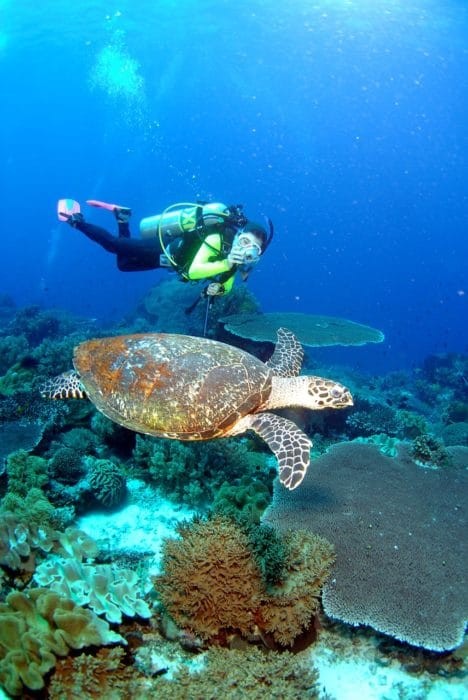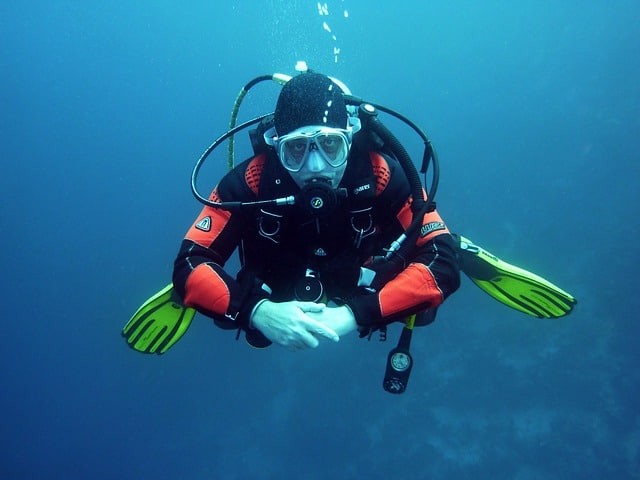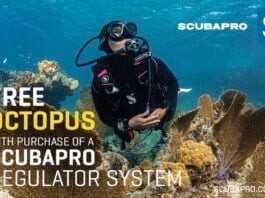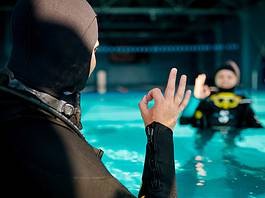We often talk about skill training and their importance in scuba diving. The basic skills are taught to a standard, which for the most part are measurable. However, outside of the basic skills there is much leeway in interpretations. You see the word “advanced” to both mean additional training as in Advanced Open Water Diver and to mean beyond entry level. We see reference to experienced divers. But what makes a diver experienced or even advanced outside of a certification course? All of this is vague without some measurable traits. We often see “advanced” divers with little or no buoyancy control. We see novice and sometimes not so novice divers running dangerous low on air, sometimes with fatal results.
Recently on a scuba diving group, I saw a post about “competency”. It had a slide from a presentation at the Royal Australasian College of Surgeons that included the information below:
“Competency requires experience, experience requires time, but time alone does not produce competence.”
1. Competency the thing(s) they need to do
2. Competent can do all the things
3. Competence does all of the things consistently, adapting to contextual and situational needs.
From a presentation by Craig McIlhenny at the Royal Australasian College of Surgeons
Most dictionaries give the same meaning for the words competency and competence, they are also used interchangeably. However, if you look at the words in an academic manner the terms do have different meanings. Competence is skill based, success is measured by a standard on how well it was done. Competency on the other hand is behavior based. It is measured more on the behavior involved and how it was achieved. This behavior involves not only the skills, but also the knowledge of when to apply it and the attitude to do so.
“Competence describes what people can do while competency focuses on how they do it. In other words, the former means a skill and the standard of performance reached, while the latter refers to the behavior by which it is achieved.” from an article by DK Sinha
While the presentation at the College of Surgeons was targeting training of surgeons, the key points on the slide apply to scuba diving as well.
Basic Skills Training
When we start our journey to become a scuba diver, there is a series of critical task that we must know. Replacing and clearing a mask, recovery of a dropped regulator, clearing a regulator, inflating and deflating our BCD, removing our weigh belt in the water and other task. I am sure that we will all agree that we need to be able to perform each of these task flawlessly in a training environment before we can become a certified diver. Our instructors are there to insure we are competent in our task. By knowing these task, certain underwater events such as losing your regulator because you smiled too much become a slight inconvenience and not an emergency. The more we practice them, the more second nature they become. Knowing these task alone does not make us a good diver.

What Makes a Good Diver?
What is a “good diver” or an “experienced diver”? These are again terms often heard but with no standards of what they mean. In my opinion, a “good diver” is one who is comfortable underwater and demonstrates certain traits. They will have a reasonable Surface Air Consumption (SAC) rate, good buoyancy control, has well maintained equipment, are situational aware, dive within their limits and respect the underwater environment. Many of these items are interrelated.
Surface Air Consumption is simply an expression on how fast you use the gas in your cylinder. It is expressed in psi or bars per minute adjusted for 1 ATM. A 30 psi SAC means you will use 120 psi if you dive to 100 feet 4 ATM(rounded). This diver can stay at 100 feet for about 16 minutes before reaching 1/3 of a tank remaining. A diver who has a 50 psi SAC diving to the same 100 feet will reach the 1/3 remainder in only 10 minutes. How you use your air is influenced by many different factors. Some of these factors are beyond our control, as example cold water will increase our air usage, females divers generally use less air than a male diver and a small frame person will use less than someone with a large frame. Your general fitness is one of the largest factors that you have control over. A fit person will use less air in any activity. The more comfortable you are in the water, the more relaxed and less stressed you are, the lower your rate of breathing. Respiratory Minute Volume (RMV) is very similar to SAC. The SAC numbers depend on using the same size tank and pressures. RMV is measured in liters per minute and is not dependent on tank size.
How you manage your buoyancy can also have a major impact on how was you use your air supply. A diver who frequently inflates and deflates their BCD or use the inflation button as an elevator control is diverting air they could be breathing. There are other articles here that discusses buoyancy control that goes into more details. Poor equipment maintenance and improper fit can also waste air. Those little air bubbles coming from your octopus and gauges are slowly using your air. Clearing your mask makes use of the air you exhale, but for most divers they are using an extra-large breath.
A good diver respects their equipment. They understand the importance of proper maintenance to insure the equipment is fully operational. They might not have the latest equipment, it might even be dated by your standards, however, if it is fully operational and reliable that is what matters. They also know all there is to know about their dive computer.
Situational awareness is a critical aspect of diving that has to be developed over time. Situational awareness is a balance between knowing what is going on around you with pursuing the goal of your dive. It also includes recognizing changes in your diving environment before they can become a challenge. The most fundamental task of being aware is monitoring your gauges. When we first start diving we have to think about it, however, if we work at developing our awareness it becomes a behavior.

Behavior Changes
When we learn to drive a car, our mind walks us through each step. As we gain experience, we do these steps without much thought. It has become a habit, a routine of behavior. Behavior refers to the actions of a living being or a system in response to the environment. One definition of creating a habit tells us:
Habit formation is the process by which a behavior becomes a habit. On the other hand a habit cannot become behavior because of the fact that one is not conscious of one’s habit. Behavior on the other hand can be innate or learned from outside sources.
When we take the skills we learn and apply them while diving, they start to modify our actions into a behavior. This behavior is influenced by the environment around us. Parts of our underwater behavior may even become a habit. One time my dive buddy and I went to see the IMAX 3d movie, Under the Sea. If you have never seen that movie, you really should. It is so realistic and shows some of the worlds best diving. We both were laughing at ourselves after the movie because more than once while watching it we each glanced down to check our gauges.
When we first start trying to improve our buoyancy control and situational awareness we must think about it. If we do not apply ourselves to the task we will not improve. We need t insure that the task are done properly and our behaviors lead to what we want to achieve. As we improve, we should move past Competence and move towards Competency. We will still need to be aware of what we are doing but it has become natural to us. We respond to the changes in the environment around us and our behavior includes those actions needed to be in control of what we are doing. Some actions such as checking our air supply will become a habit.
Making a change in your underwater behaviors will take time, it is a learned behavior where we take our skills and use them to interact with our environment.



